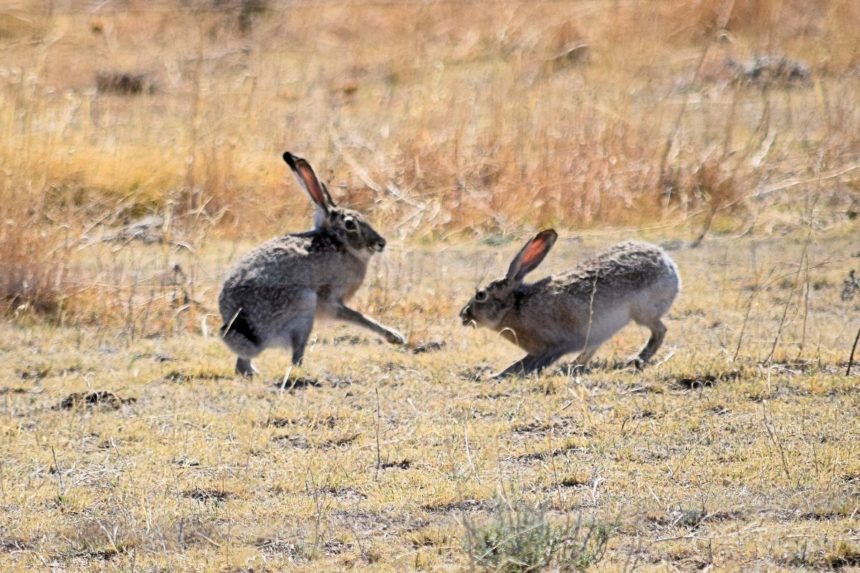Parks and Wildlife requests help tracking deadly rabbit disease in El Paso County

COLORADO SPRINGS, Colo. (KRDO) -- Wildlife officials are asking for the public's help in tracking a contagious disease that has been killing rabbits in El Paso County and other communities along the Eastern Plains.
In a release Friday, Colorado Parks and Wildlife said it has found dozens of wild rabbits near Calhan that had died of Rabbit Hemorrhagic Disease Virus type 2 (RHDV-2). The disease has also been recently seen in the San Luis Valley, Prowers County and Costilla County.
To be clear, the disease is only transmissible among rabbits and hares. However, it can infect pet rabbits and harm animals that prey on infected rabbits. As such, CPW is warning people to keep their pets away from wildlife carcasses. To track the deadly virus, CPW is asking the public to watch for multiple dead or sick rabbits.
Wildlife officials are cautioning people to NOT touch or handle dead wildlife -- although RHDV-2 is not transmissible to other species, sick wildlife could be carrying other diseases or infections that are harmful to humans.
RHDV-2 is from a different viral family than coronavirus and is not related to COVID-19, said CPW.
See below for a list of tips and guidelines from CPW:
Guidelines for Wild Cottontails, Hares and Pika
- Please report multiple sick/dead wild rabbits, jackrabbits, snowshoe hares or pika to your local CPW office.
- Do not handle rabbits or rodents that have been found dead.
- Do not allow pets or scavengers to feed on found carcasses. Though RHDV-2 is not a risk to pets other than domestic rabbits, a number of other pathogens and parasites from carcasses can affect pets.
- Do not handle or consume rabbits or other game animals that appear to be sick. Instead, report these cases to the nearest CPW office.
- Meat from healthy rabbits harvested by hunters is safe to consume when cooked thoroughly.
Guidelines for Domestic Rabbits
- Rabbit owners should exercise extreme caution and biosecurity to avoid accidental exposure of domestic rabbits through contaminated feed, bedding, equipment or clothing that may have come in contact with infected domestic or wild rabbits or birds that could transfer the virus from infected wild rabbits.
- Domestic rabbits should not be housed outdoors in areas where rabbit hemorrhagic disease has been detected in wild rabbits.
- Contact your veterinarian for more information about this disease in domestic rabbits.
Helpful Links on RHDV-2:
https://cpw.state.co.us/Documents/Wildlife-Health/Rabbit_Hemorrhagic_Disease.pdf
http://www.cfsph.iastate.edu/Factsheets/pdfs/rabbit_hemorrhagic_disease.pdf
https://www.aphis.usda.gov/publications/animal_health/fs-rhdv2.pdf
https://www.colorado.gov/aganimals/rabbit-hemorrhagic-disease-virus-rhdv2